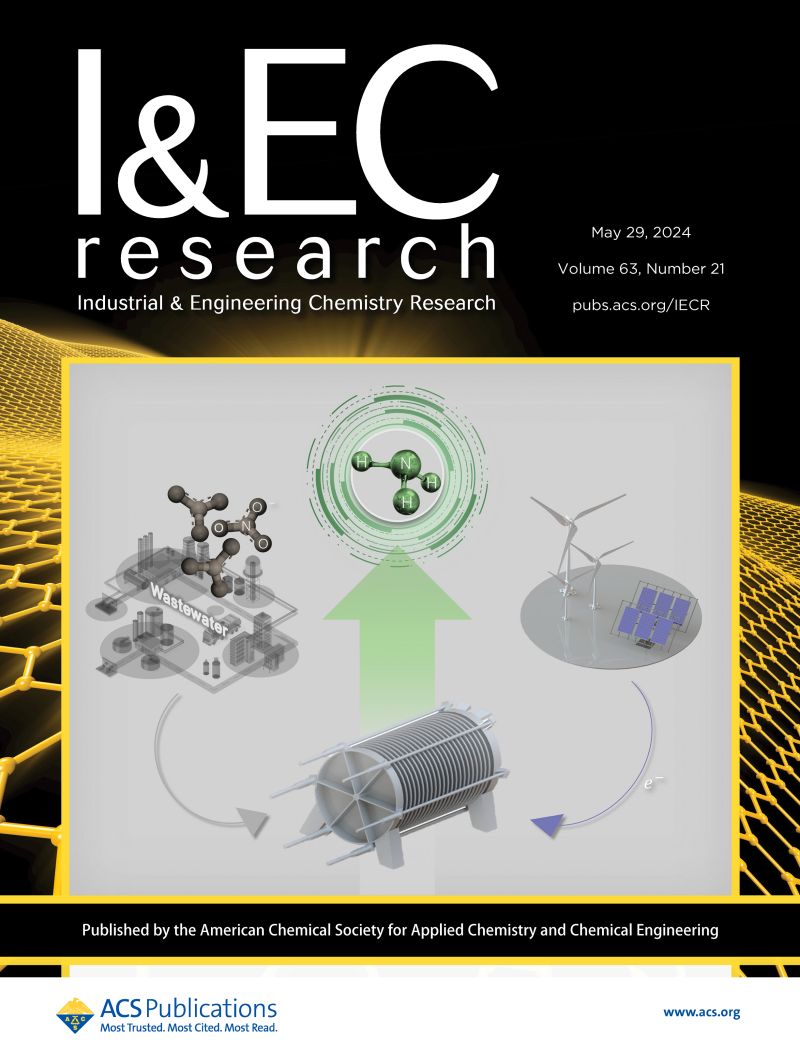A Circular Economy Systems Engineering Framework for Waste Management of Photovoltaic Panels
IF 3.8
3区 工程技术
Q2 ENGINEERING, CHEMICAL
引用次数: 0
Abstract
The growing global population places immense pressure on natural resources, leading to extensive raw material extraction and substantial waste generation, which exacerbate resource depletion, ecosystem degradation, and greenhouse gas emissions. The problem has become particularly evident in addressing the increasing raw material needs for renewable energy investments consisting of solar panels, wind turbines, and batteries under limited and geographically constrained resources along with the problem of the end-of-life (EoL) management of retired systems. Transitioning to a circular economy (CE) offers a sustainable solution to this dual problem by creating regenerative processes and supply chains that prioritize reuse and the recovery of valuable materials, addressing resource needs, and waste problems. While CE aims to decouple economic growth from raw material dependency, balancing conflicting objectives of multiple stakeholders in industry, society, and government calls for advanced mathematical models to make informed investment, operations, and regulatory decisions. This study introduces an initial effort toward a holistic Circular Economy Systems Engineering framework, integrating multidisciplinary approaches to systematically design, operate, and optimize cost-effective, environmentally conscious, and resilient systems that close material and energy loops while addressing economic, environmental, and social objectives under resource constraints. In this research, we present a multiobjective optimization framework for EoL management of photovoltaic panels, combining cost and life-cycle assessment (LCA) driven CO2 equivalent emissions parameters in a mixed-integer linear programming approach to explore optimal strategies for resource recovery and waste management. The framework helps identify optimal solutions tailored to waste management strategies. A case study on monocrystalline silicon photovoltaic recycling and production demonstrates the framework’s ability to investigate the trade-offs between economic and environmental objectives, highlighting its potential to advance CE strategies by recovering critical resources and supporting sustainable practices in complex forward and reverse supply chains.

光伏板废弃物管理的循环经济系统工程框架
全球人口的增长给自然资源带来了巨大的压力,导致大量的原材料开采和大量的废物产生,这加剧了资源枯竭、生态系统退化和温室气体排放。这个问题在解决可再生能源投资日益增长的原材料需求方面变得尤为明显,这些投资包括太阳能电池板、风力涡轮机和地理资源有限的电池,以及退役系统的寿命终止(EoL)管理问题。向循环经济(CE)过渡,通过创建再生流程和供应链,优先考虑有价值材料的再利用和回收,解决资源需求和浪费问题,为这一双重问题提供了可持续的解决方案。虽然CE的目标是将经济增长与对原材料的依赖脱钩,但平衡行业、社会和政府中多个利益相关者的相互冲突的目标需要先进的数学模型来做出明智的投资、运营和监管决策。本研究介绍了对整体循环经济系统工程框架的初步努力,整合多学科方法,系统地设计、运行和优化具有成本效益、环保意识和弹性的系统,这些系统在解决资源约束下的经济、环境和社会目标的同时,闭合材料和能源循环。在这项研究中,我们提出了一个光伏板EoL管理的多目标优化框架,结合成本和生命周期评估(LCA)驱动的二氧化碳当量排放参数,在混合整数线性规划方法中探索资源回收和废物管理的最佳策略。该框架有助于确定适合废物管理战略的最佳解决方案。对单晶硅光伏回收和生产的案例研究表明,该框架有能力调查经济和环境目标之间的权衡,强调其通过回收关键资源和支持复杂的正向和反向供应链中的可持续实践来推进CE战略的潜力。
本文章由计算机程序翻译,如有差异,请以英文原文为准。
求助全文
约1分钟内获得全文
求助全文
来源期刊

Industrial & Engineering Chemistry Research
工程技术-工程:化工
CiteScore
7.40
自引率
7.10%
发文量
1467
审稿时长
2.8 months
期刊介绍:
ndustrial & Engineering Chemistry, with variations in title and format, has been published since 1909 by the American Chemical Society. Industrial & Engineering Chemistry Research is a weekly publication that reports industrial and academic research in the broad fields of applied chemistry and chemical engineering with special focus on fundamentals, processes, and products.
 求助内容:
求助内容: 应助结果提醒方式:
应助结果提醒方式:


